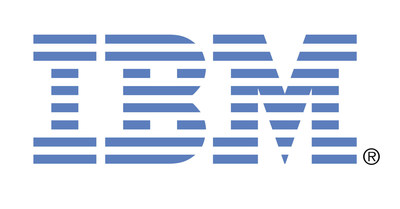ARMONK, N.Y., Sept. 18, 2024 /PRNewswire/ — New research from IBM’s Institute for Business Value and the Banking Industry Architecture Network (BIAN), in collaboration with the SME Finance Forum managed by the International Finance Corporation (IFC), has uncovered that despite small to medium-sized enterprises (SMEs) being a crucial part of the global economy, banks are not fully capitalizing on opportunities to nurture growth within this segment. This is mainly because banks are overly focused on minimizing risks, adhering to regulatory requirements, and managing the high costs associated with serving this diverse client base.
The Banking for Small and Medium Enterprises: Serving the World Economy with Data and AI report presents findings and analysis derived from a global survey of SME business owners and managers, senior banking executives, and fintech leaders. Small to medium-sized enterprises account for 90% of all businesses, 70% of the workforce, and contribute to 50% of the global GDP. This highlights the significant potential for banks and financial institutions to make a positive impact on this sector. However, there is a noticeable gap between what SMEs need and what banks currently offer, indicating a largely untapped opportunity for agile financial institutions to leverage.
Understanding the Disconnect
“The gap between the needs of small and medium-sized businesses and the services provided by banks is quite stark,” said Shanker Ramamurthy, Global Managing Partner Banking & Financial Markets, IBM Consulting. “The encouraging news is that technologies such as generative AI, combined with automation and a strong data strategy, enable financial institutions to play a much more significant role in the growth of this important client segment.”
Generative AI refers to artificial intelligence systems that can generate new content, ideas, and solutions based on the data they have been trained on. When combined with automation and effective data strategies, these technologies can help banks offer more personalized and efficient services to SMEs.
The Importance of Technology Adaptation
“Banks globally are increasingly utilizing the cost-effectiveness of cloud technology for high-volume transactions, while maintaining their core functions and most sensitive data on-premises,” said John Duigenan, General Manager Global Financial Services Industry, IBM Technology. “A strong hybrid cloud strategy is essential for financial institutions to fully exploit the capabilities of generative AI, providing insights into customer behavior and anticipated needs while ensuring the highest standards of privacy, security, and resilience.”
Hybrid cloud refers to a computing environment that combines on-premises data centers with public and private cloud services, allowing data and applications to be shared between them. This approach ensures flexibility, scalability, and enhanced security, making it ideal for financial institutions that handle sensitive data.
Advance Through Standardization
“To better serve their diverse client segments, financial institutions must adopt a technology development methodology that enables organization-wide acceleration,” said Steve Van Wyk, Chairman, Banking Industry Architecture Network. “Adopting proven industry standards allows banks to lay the essential groundwork for improving their competitiveness.”
Key Findings
- Only 6% of bank executives rated their institution’s SME banking services as “A”. Nearly 47% rated them as “C”.
- SMEs seek understanding of their unique business needs, tailored solutions, and networking opportunities, while banks focus on apps, dedicated relationship managers, and branch proximity.
- SMEs prioritize help with compliance and legal requirements, as well as sustainability decisions and reporting. In contrast, banks prioritize fraud monitoring and insurance for unforeseen events.
- 64% of bank executives acknowledge the value of technology architecture standards, noting faster development, reduced costs, and quicker integration capabilities.
Recommendations
- Financial institutions should consider investing in ecosystem platforms and partners to create opportunities for SME clients to grow through digital innovation.
- An enterprise-wide approach to scaling emerging technologies, rather than tactical applications, is the best strategy to maximize the benefits of generative AI, automation, and data, ensuring these advantages extend to all business lines and customer segments.
- Banks should embrace emerging technologies like generative AI and automation to achieve greater efficiencies in compliance, risk, and operations, allowing them to redirect resources to enhance their SME client offerings.
For the full report, visit www.ibm.com/thought-leadership/institute-business-value/en-us/report/small-medium-enterprises-banking.
Methodology
The IBM Institute for Business Value surveyed over 1,000 SME owners and managers with 50 or more employees, distributed across nine countries, to explore their banking needs and adaptation to digital services. Nearly 700 banking executives across 25 countries were also surveyed to understand their competition in SME banking. Additionally, one-on-one interviews with executives from financial institutions and fintechs were conducted for deeper insights. Data collection for the study occurred from June through August 2024.
The IBM Institute for Business Value, IBM’s thought leadership think tank, combines global research and performance data with insights from industry experts and academics to provide valuable knowledge to business leaders. For more thought leadership content, visit www.ibm.com/ibv.
About IBM
IBM is a leading provider of global hybrid cloud, AI, and consulting expertise. Serving clients in over 175 countries, IBM helps organizations leverage data insights, streamline business processes, reduce costs, and gain a competitive edge. Governments and corporations in critical sectors like financial services, telecommunications, and healthcare rely on IBM’s hybrid cloud platform and Red Hat OpenShift for swift, efficient, and secure digital transformations. IBM’s innovations in AI, quantum computing, industry-specific cloud solutions, and consulting provide flexible options supported by a commitment to trust, transparency, responsibility, inclusivity, and service. For more information, visit www.ibm.com.
For additional information, refer to the Financial Institutions Group (FIG) MSMEs report by the International Finance Corporation (IFC) at https://www.ifc.org/content/dam/ifc/doc/2024/msme-s-factsheet-ifc-financial-institutions-group.pdf.
SOURCE IBM
For more Information, Refer to this article.




































